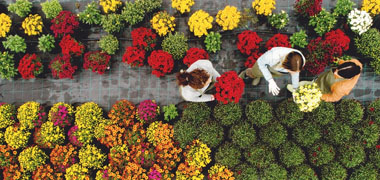
How do I become a apiarist?
Diploma of Business
- There are no mandated entry requirements.




Certificate IV in Business
- There are no mandated entry requirements.




Certificate III in Business
- There are no mandated entry requirements.




Certificate III in Beekeeping




Certificate II in Agriculture
- There are no mandated entry requirements.








 Melbourne Polytechnic
Melbourne Polytechnic
Bachelor of Outdoor Education and Environmental Science
- There are no mandated entry requirements.
 Victoria University
Victoria University
Related occupations
Beekeeper
A Beekeeper manages beehives for honey production, oversees bee health, and handles marketing and transport of products.
Common questions
How much does an Apiarist earn?
In Australia, a full time Apiarist generally earns $1,300 per week ($67,600 annual salary) before tax. This is a median figure for full-time employees and should be considered a guide only. As you gain more experience you can expect a potentially higher salary than people who are new to the industry.
What are the job opportunities for an Apiarist?
The beekeeping industry has seen an increase in employment numbers in recent years. There are currently 1,200 people employed as an Apiarist in Australia compared to 1,000 five years ago. Apiarists may find work across all regions of Australia but are more likely to find job opportunities in rural and regional areas.
Source: Australian Government Labour Market Insights
How do I become an Apiarist?
If you’re planning a career as an Apiarist, consider enrolling in a Certificate III in Beekeeping. This course will show you how to extract honey, use smokers and transport a beehive. You’ll explore topics such as establishing an apiary site, assembling and maintaining a beehive and managing a honey bee swarm.
Further reading


Careers for people who love the outdoors
14th September 2021)

